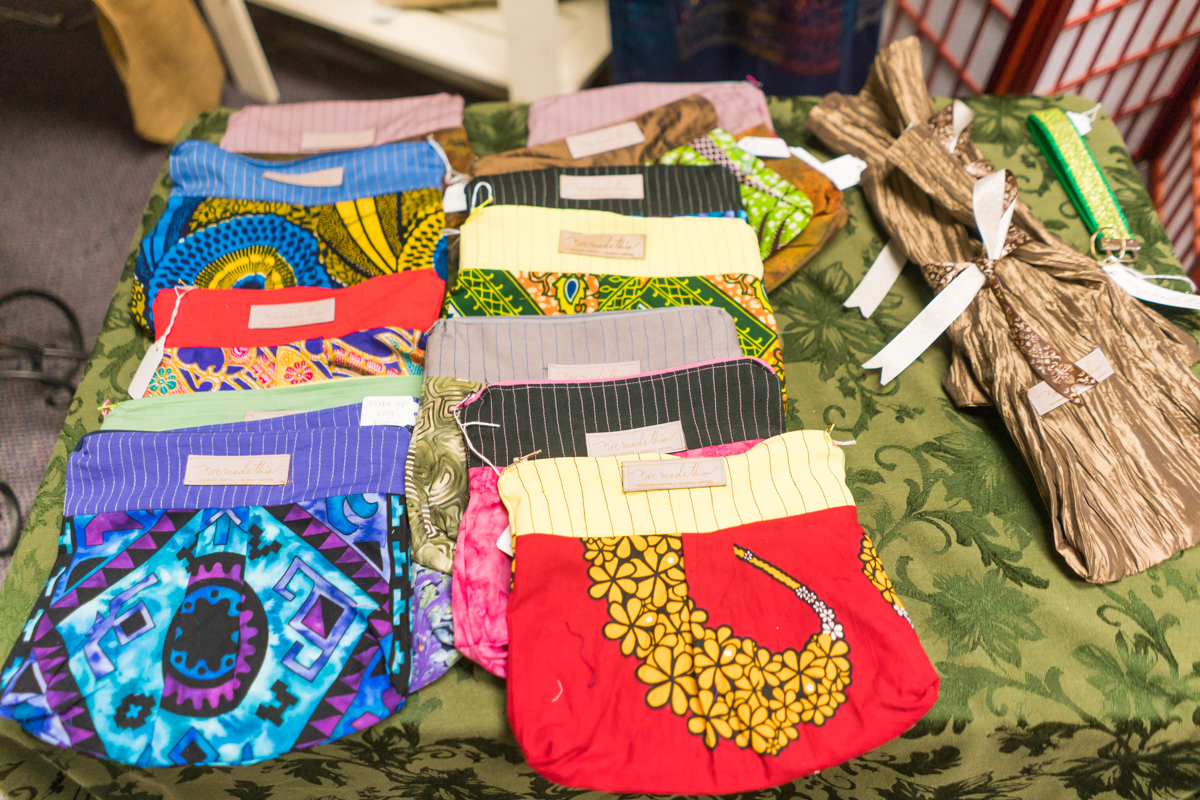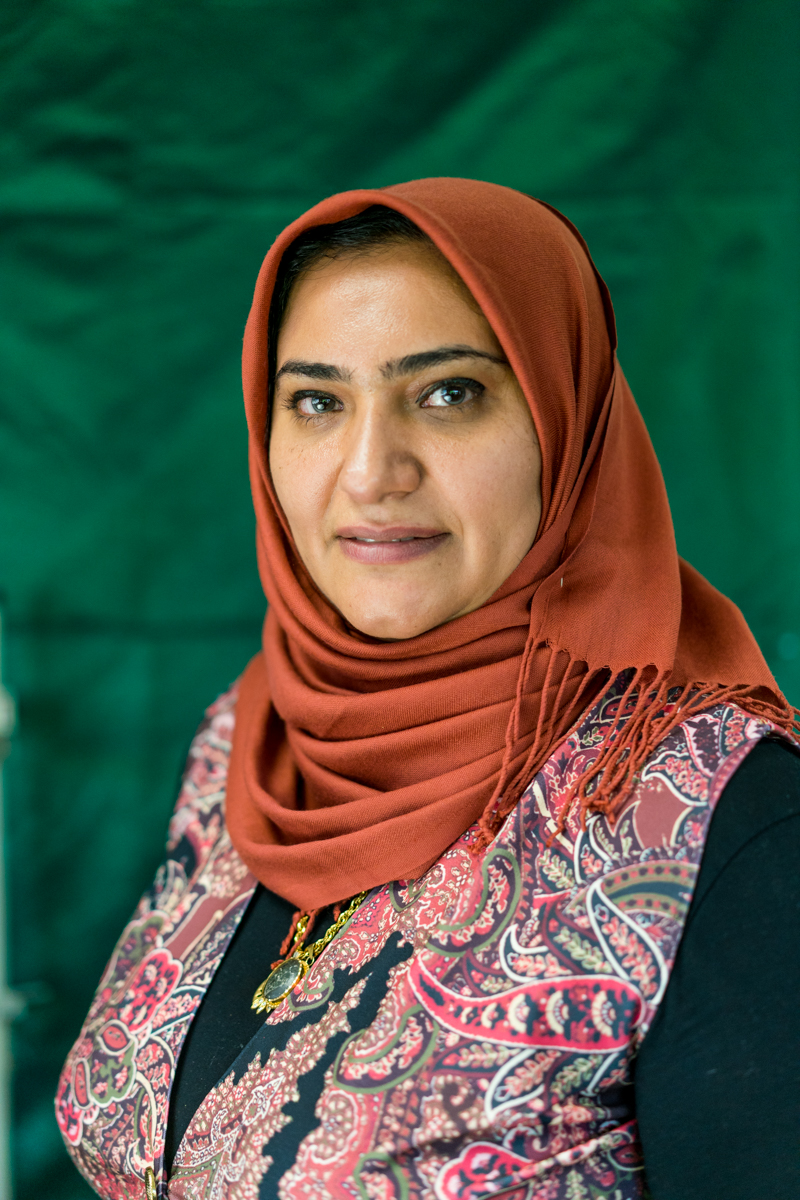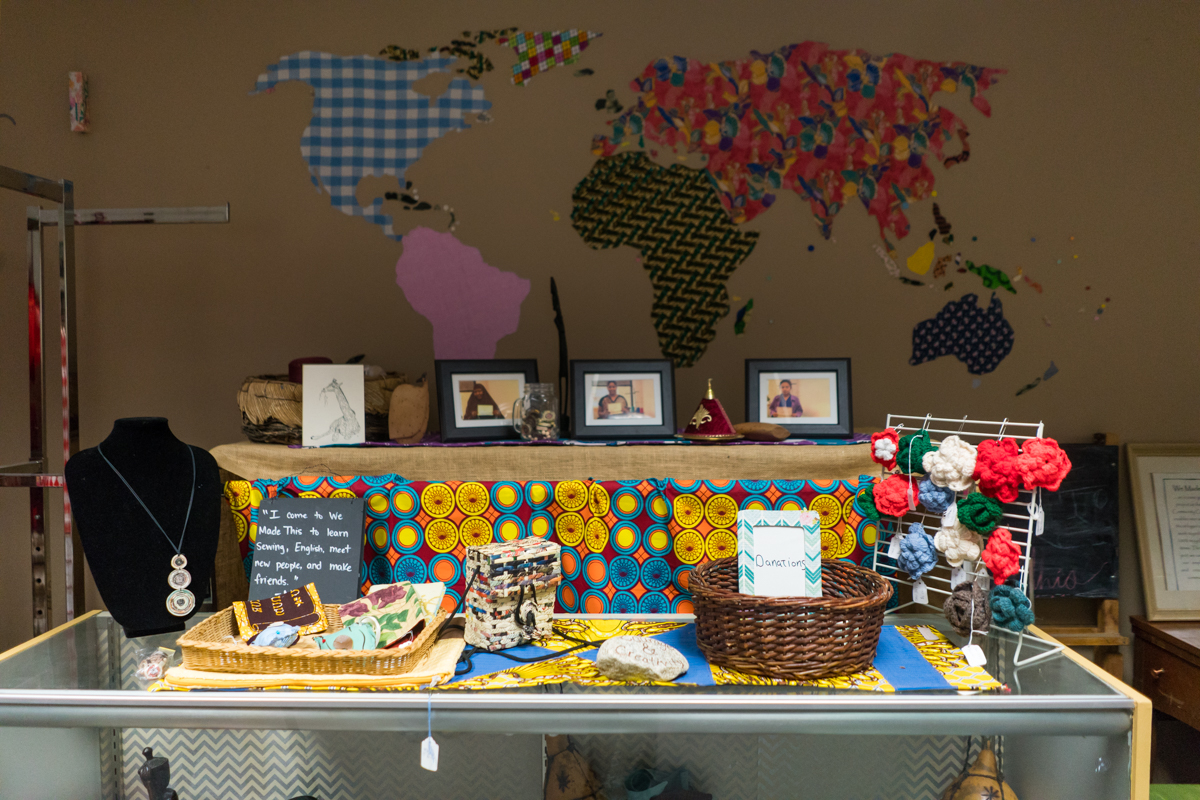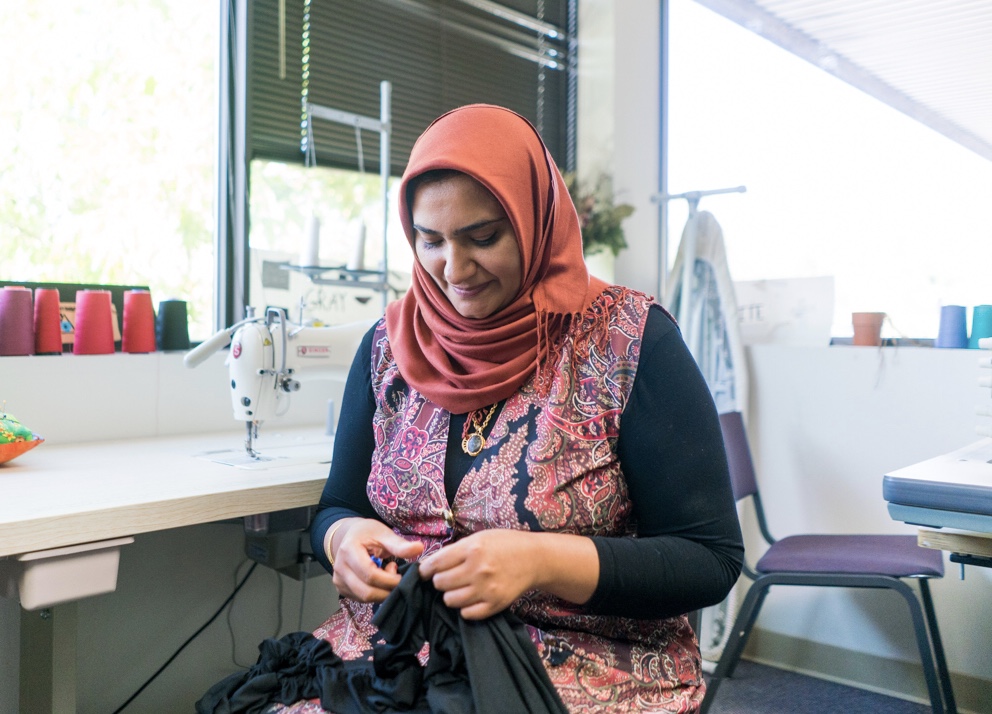It’s an unforgettable and uniquely magical experience to visit the We Made This (WMT) sewing classrooms. A small entryway filled with multicolored clothing and accessories opens into a larger room where vibrant fabrics line the shelves, sewing machines hum and women sing. Messages of encouragement and photographs of WMT program graduates line the walls. This isn’t just a place refugee women learn to sew; there is something complex and beautiful happening here.
The African Community Center of Denver (ACC) started WMT in 2009 with a few women who wanted to learn to sew hijabs for their daughters. Since then, the initiative has grown into a 12-week program with morning and afternoon sessions for women with varying skill levels, but the technical components are just part of it.
“The less tangible pieces are really a very important part of what we do,” explained Melissa Theesen, managing director for the ACC. “We focus on psychosocial aspects as well, like helping build confidence, build connections and establish friendships.”

For women like Zahra Mohammdi and Shaymaa Allmallah, WMT has provided the ability to think about the future for the first time. “Refugees like me don’t think about the future,” said Mohammdi. “We don’t know about the future, so when we leave our country, we don’t think about dreams or good life.” Mohammdi came to the United States from Afghanistan nine months ago at the urging of her father, who didn’t want her to live in such a dangerous, uncertain place anymore. She has been in the WMT program for four months, where her creativity is thriving. “Zahra is extremely talented with many different types of art,” said Kristi Rogers, program coordinator for WMT. “She is always innovating and changing what she does here in some creative way.”

Having relocated from Iraq eight short months ago, Allmallah is also flourishing under the guidance of her teachers and mentors. Although she frequently giggles as she speaks, there is no question about how she feels about fashion. “Many things are exciting for me here,” she said. “I want to be a designer and make fancy dresses for parties.” Allmallah has excelled to such a degree that she is now developing patterns for the program. “Because she is interested in being a designer, I have been trying to involve her in product development,” said Rogers. “That’s not something that is part of the regular curriculum, but she is doing very well.”

Once Mohammdi and Allmallah graduate from the program, they will each receive a sewing machine and will have the opportunity to start making a regular income as they pursue their fashion careers. Clothing and accessories created through WMT are sold at places like the South Pearl Street Farmers Market, and 55 percent of each item’s sale price goes back to the individual who created the item. The ACC is also working on an online platform, so they will be able to sell the clothing through their website, creating more opportunity for graduates to earn income and support their families. Equally as important as economic stability is the emotional support WMT provides. The bond these women share is real and palpable. “Some of the most beautiful work we do is bringing communities who are quite different together,” said Theesen. “They can find commonalities and shared passions and really learn from each other.”
Photography by Meg O’Neill






